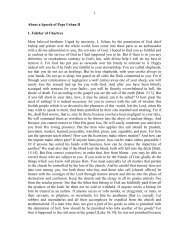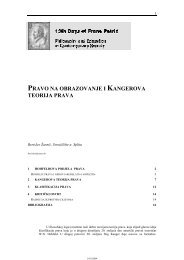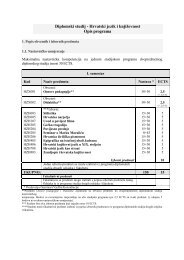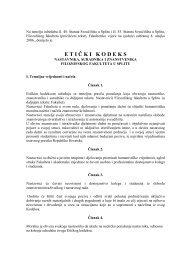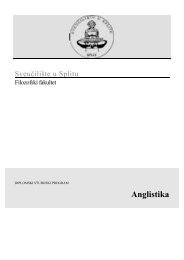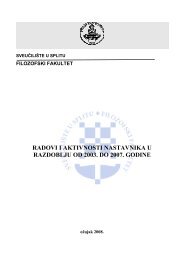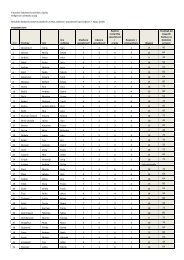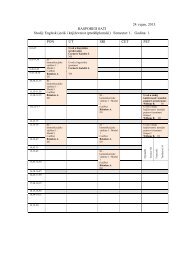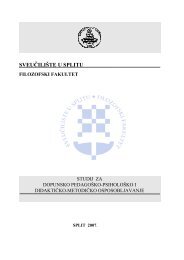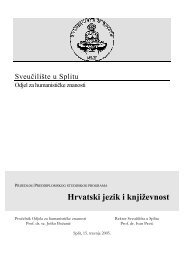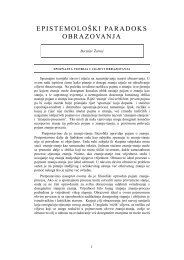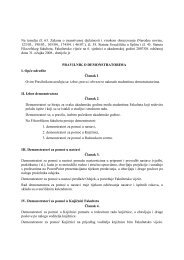Understanding Human Communication
Understanding Human Communication
Understanding Human Communication
You also want an ePaper? Increase the reach of your titles
YUMPU automatically turns print PDFs into web optimized ePapers that Google loves.
ONCE UPON A SEPTEMBER DAY—<br />
Another meeting! One after another without coming<br />
up with a proposal that would fly.<br />
This one took place in early September and (not<br />
surprisingly) only a few people showed up—12, to be precise.<br />
And so they talked for some days and finally came up with a<br />
plan for still another meeting, eight months hence. It was<br />
hoped this would offer sufficient time to generate interest in<br />
the matter.<br />
They also moved the location. It was not that the<br />
September site had been unpleasant—on the contrary, the<br />
facilities were quite good—but variety in meeting places<br />
might induce more individuals to attend.<br />
Of the 74 invitees, 55 showed up. But they didn’t all come<br />
at once. They were supposed to convene on Monday, May 14,<br />
but it wasn’t until Friday, May 25, that enough were present to<br />
conduct business. They decided to work diligently from that<br />
day on until they finished their proposal. They even agreed to<br />
put a lid on their deliberations.<br />
They were a relatively young group; the average age was<br />
42. The youngest was 30 and the oldest 82 and prone to nod<br />
during long meetings. Although some were lackluster in<br />
ability, most were able and would later move to high executive<br />
positions.<br />
They were together for 116 days, taking off only Sundays<br />
and 12 other days. And you might have guessed it: During a<br />
very hot summer they were without air conditioning. In<br />
RESOURCES For many tasks, groups possess a greater collection of resources<br />
than do most individuals.Sometimes the resources are physical.For example,three<br />
or four people can put up a tent or dig a ditch better than a lone person. But on<br />
other problems the pooled resources lead to qualitatively better solutions.<br />
Think, for instance, about times when you have studied with other students for<br />
a test,and you will remember how much better the group was at preparing for all<br />
the questions that might be asked and at developing answers to them. (This, of<br />
course, assumes that the study group members cared enough about the exam to<br />
have studied for it before the group meeting.) Groups not only have more resources<br />
than individuals, but also through interaction among the members they<br />
are better able to mobilize them.Talking about an upcoming test with others<br />
can jog your memory about items you might not have thought of if you had<br />
been working alone.<br />
ACCURACY Another benefit of group work is the increased likelihood of catching<br />
errors. At one time or another, we all make stupid mistakes, like the man who<br />
built a boat in his basement and then wasn’t able to get it out the door.Working<br />
in a group increases the chance that foolish errors like this won’t slip by. Some-<br />
CHAPTER 9 SOLVING PROBLEMS IN GROUPS 291<br />
addition to the formal sessions of the entire group, much of<br />
their work was done in committee and after hours.<br />
The formal sessions sometimes got out of hand. One<br />
faction had come with a proposal that was almost the reverse<br />
of an outline offered by another group. The advocates of each<br />
seemed unwilling to bend, and by the end of June tempers<br />
were flaring so much that the oldest participant suggested<br />
beginning each session with an invocation.<br />
By early June, they got wind of a way out of their impasse:<br />
Adopt a portion of each plan. By compromising, they might be<br />
better able to sell their product to a broad market. Yet even<br />
this task of drawing the line between two extremes was not<br />
easy, and so some decided to go home or back to their<br />
offices. It simply was not worth the effort.<br />
Even among those who remained there was still criticism<br />
of the final proposal. It was much too short, some argued—<br />
only 4,000 words. Four months of work and only 4,000 words!<br />
It was scarcely enough to fill a few sheets of paper. But 39 of<br />
them felt it was the best they could come up with. It was good<br />
enough to sign, which they did on the 17th day of September,<br />
1787.<br />
And they called their proposal the Constitution of the<br />
United States.<br />
Thomas V. DiBacco<br />
CULTURAL IDIOM<br />
to put a lid on: to limit the time<br />
spent<br />
to nod: to fall asleep<br />
out of hand: out of control<br />
got wind of: learned about<br />
jog your memory: remind<br />
yourself



